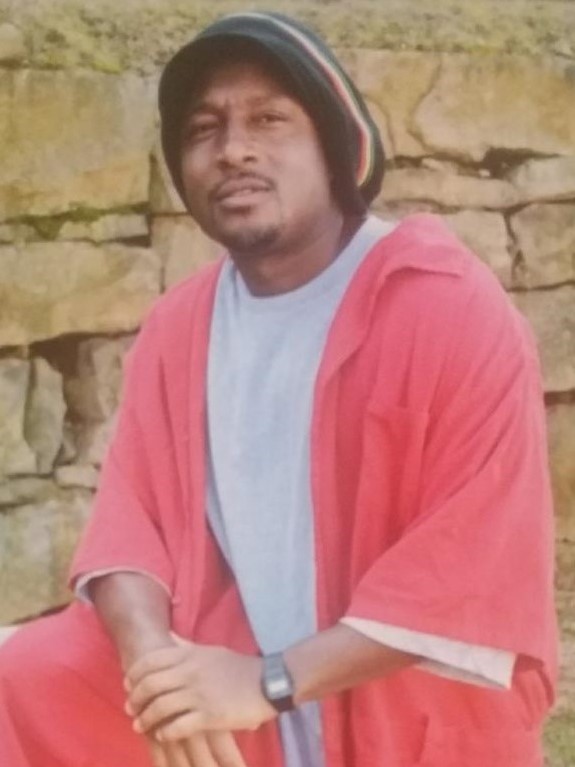Some tragedies are gradual, prolonging dismay, others swift and unexpected, yet loss in any form effects in us a void that can only be filled with time. It is loss to which we are all akin, regardless of status, color or creed, none excluded from the woeful affliction all of humankind will suffer. Tear-stained cheeks, fine suits and condolences are the soothing, necessary etiquette, after which we look to move on – but occasionally we find we can’t.
Chris was a childhood friend I grew up with on Fountain Drive, a project housing development set on the outskirts of town. There were no ills of the inner-city there, like drugs and prostitution. Sequestered by fields and lush greenery, we were burgeoning country folk. We scoured ditches for crayfish, climbed trees to pick wild berries, and explored the far reaches of the surrounding woods where we carved out a world all our own.
A favorite pastime was the community football game. Narrow eyes stared across a makeshift field as we rivaled one another. We tackled, grappled, and cussed with fervor to demonstrate our toughness, but in the end we always left as friends, looking forward to carrying on the next day.
It was the older kids in the neighborhood that first ganged up on Chris – my brother and his closest friends. It was an assault that came without merit as Chris had committed no offense. Instead of contesting their egregious violation, Chris up and ran away, unaware the flight-mode mentality would begin a lifelong recurrence.
Although a rural bubble, Fountain Drive was not the easiest place to live. No one qualified for low-income housing more than single mothers and senior citizens, and with many of our moms off working to improve their conditions and the elderly nestled up to their daytime television shows, we ran around mostly unsupervised and growing unrulier by the day.
We had petty differences, some escalating to fist fights, that seldom outlasted the day. We ransacked the neighborhood community center and egged each other on to steal. Everything from throwing rocks at passing cars to prank calling the fire department, our mischief knew no bounds, yet nothing would ignite our frenzy more than chasing after Chris.
Chris, himself, was a passive misfit – just barely on the right side of wrong. His misdeeds were rather frivolous, swiping an item from a clothesline or lifting coins for his mother’s purse. He was never one to talk trash, though his size was intimidating enough. At ten, he was a head taller than most teenagers, and by thirteen, he was the same age as his shoe size. With shoulders as wide as a welcome embrace and powerful legs that were the getting-away kind, we stood almost no chance of catching him, yet we were thrilled to try.
Chris, however, was a gentle soul. He was thoughtful and forgiving, and usually, within a day or so, he was back amongst the clique. Despite his hulking size, he had a boyish quality that was much more fun to keep around, and over time, our betrayals became less frequent, until we no longer chased him away.
By fifteen, Chris’ interests had matured, and he began to venture outside the neighborhood to other parts of town. It was courting girls that had procured his attention, and he thought to visit them whenever possible. However, as we had long given up chasing Chris, other kids from around town had just begun, until it seemed that bullying Chris was the most expected thing to do.
Once, I witnessed him fleeing from some guys – but did nothing in the way of help, afraid I was a word in his defense away from being bullied myself. Chris, though, had an impeccable reputation for outpacing his foes, as many of his aggressors gave chase for sport, all except one… Mikey.
A local badass who favored drinking and fighting, Mikey was the epitome of trouble. He was the guy the other bullies steered clear of. It was a brisk night outside a nightclub when Mikey set his sights on Chris – but this time, there would be no running away. Instead, Chris fought back.
As it turned out, Chris didn’t run all those years because he was fearful – it was a method of harm prevention. He figured as long as he didn’t hurt anyone today, things would be better tomorrow. He ran away because he was being a better friend to us than we ever were to him. Unlike Mikey, who was ruthless – not to mention a sore loser.
Some few nights later while walking home alone, Chris spotted a suspicious vehicle. He discovered that it was Mikey, along with some friends. Outnumbered, Chris had little choice but to flee, taking cover behind some houses as Mikey stepped out of the car with a gun and fired a shot in the dark. Assuming Chris was long gone, Mikey and his crew sped off, unaware the bullet had hit its mark as Chris lay dying in the night.
It wasn’t until the next morning his body was discovered, entangled in the brush. Chris had been killed at just sixteen… and I never got to say, ‘I’m sorry’.
Regrets, juxtapose to loss, are the things that remain, the stuff of good memories, shared experiences, and lost opportunities. After 32 years, it’s regrets that have kept Chris alive in my heart, and without which, I fear I will lose one of the best people I ever knew.

ABOUT THE AUTHOR: Terry Robinson often writes under the pen name ‘Chanton’, and is a member of the Board of Directors of WITS. He is an author who has found purpose not only in his love of writing, but also in lending his voice to those who cannot speak for themselves. He is also an innocent man who has lived on death row for over 20 years. Terry continues to work on his memoirs, as well as a book of fiction, and we are proud to call him a member of this team.
Mr. Robinson can be contacted at:
Terry Robinson #0349019
Central Prison
4285 Mail Service Center
Raleigh, NC 27699-4285
![]()

Thinking about you. Love you Unc.